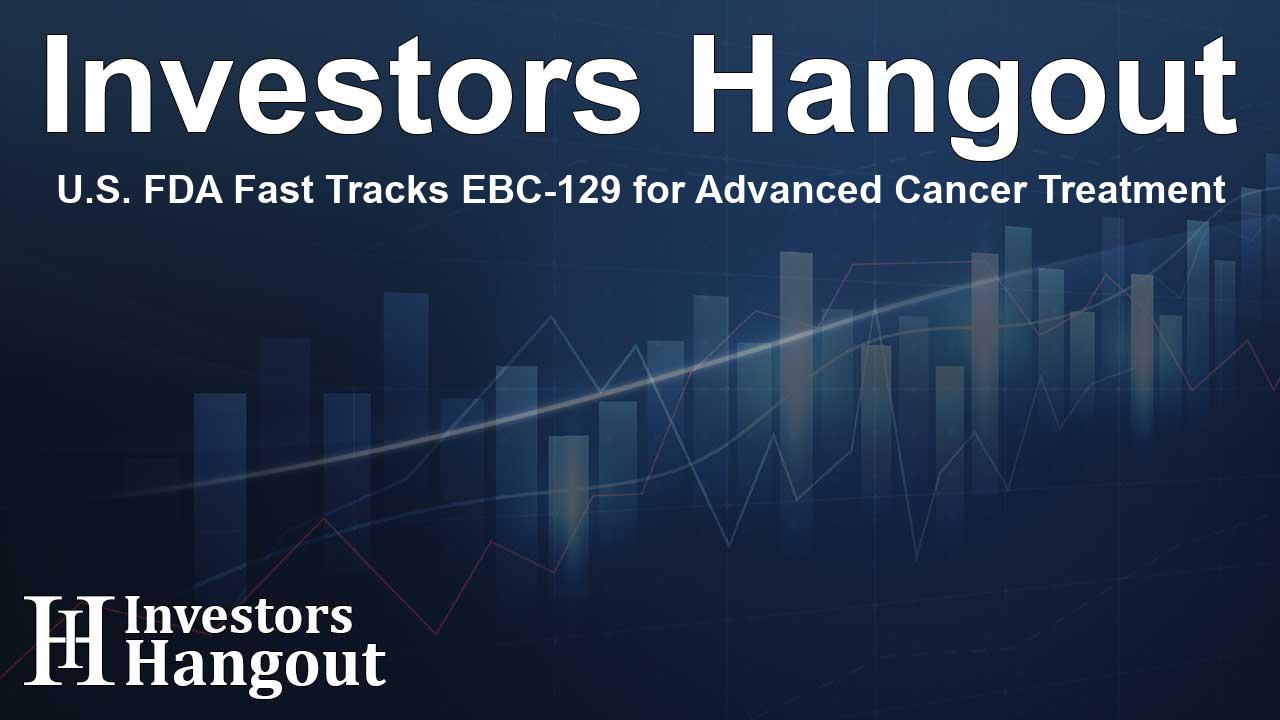U.S. FDA Fast Tracks EBC-129 for Advanced Cancer Treatment

EBC-129 Receives FDA Fast Track Designation
The Experimental Drug Development Centre (EDDC) has exciting news for cancer treatment. The U.S. Food and Drug Administration (FDA) has officially granted Fast Track Designation for EBC-129, an innovative antibody-drug conjugate (ADC) aimed at tackling pancreatic ductal adenocarcinoma (PDAC). This recognition underscores the importance of EBC-129 in addressing critical medical needs in the fight against this devastating form of cancer.
What is EBC-129?
EBC-129 is a groundbreaking ADC designed to selectively target a unique tumour-specific N-glycosylated epitope present on both CEACAM5 and CEACAM6. These markers have demonstrated a significant role in tumour progression, making them ideal targets for therapy. This makes EBC-129 the first ADC developed in Singapore to progress into clinical development, showcasing local innovation and dedication towards providing new treatment options for patients.
The Importance of Fast Track Designation
Receiving Fast Track Designation from the FDA accelerates the development pathway for EBC-129. This designation facilitates more frequent interactions with the FDA, enabling quicker feedback and discussions regarding clinical development plans, ultimately speeding up the availability of this promising therapy to patients. Additional benefits may include eligibility for Priority Review and Accelerated Approval processes, along with a rolling review for future applications.
Clinical Development and Future Presentations
Ongoing Phase 1 clinical trials of EBC-129 are vital to its development. Updated findings from these trials are set to be presented at a prestigious upcoming event: the Annual Meeting of the American Society of Clinical Oncology (ASCO). This gathering, held in Chicago from May 30 to June 3, 2025, will highlight the advancements made with EBC-129 in treating PDAC.
Presentation Details
The presentation will delve into the clinical activity of EBC-129, emphasizing its focus on addressing PDAC through innovative strategies.
Details of the Session
The presentation will showcase how EBC-129 interacts with specific tumour markers, aiming to improve treatment outcomes. It is crucial for medical professionals to understand the potential of EBC-129 in expanding therapeutic options for patients facing this challenging diagnosis.
About the Ongoing Phase 1 Study
The Phase 1 trial of EBC-129 is more than just an evaluation of safety; it represents hope for many patients with advanced solid tumours. The clinical study not only assesses EBC-129 as a standalone treatment but also evaluates its combination with pembrolizumab, aiming to enhance overall efficacy. Targeting patients with a high unmet medical need, the study is actively enrolling participants across various cohorts, including those with gastroesophageal adenocarcinoma (GEA).
Understanding the Targeted Cancer Therapies
CEACAM5 and CEACAM6 serve as significant indicators within tumour biology, particularly for their involvement in metastasis and cancer progression. Trials indicate that EBC-129, through its targeted approach, shows promising results across various cancers, including pancreatic and lung cancers. The payload utilized in EBC-129, monomethyl auristatin E (MMAE), is also noteworthy due to its previous successful applications in other ADCs, which have demonstrated enhanced effectiveness when used in conjunction with immunotherapies like PD-1 inhibitors.
About the Experimental Drug Development Centre
The EDDC stands at the forefront of drug discovery and development in Singapore. Formed by integrating various initiatives, the EDDC is dedicated to advancing therapeutics and diagnostics. Its mission extends beyond local boundaries, aspiring to enhance patient care in Asia and globally. By fostering collaborations with public and private sectors, EDDC aims to transform cutting-edge research into practical solutions for real-world challenges in healthcare.
Frequently Asked Questions
What is the significance of the FDA's Fast Track Designation?
The Fast Track Designation allows for quicker development and review of EBC-129, expediting its availability to patients with pancreatic cancer.
What type of cancer does EBC-129 target?
EBC-129 primarily targets pancreatic ductal adenocarcinoma (PDAC) by focusing on specific biomarkers associated with the disease.
How does EBC-129 work?
It is an antibody-drug conjugate that selectively binds to tumour-specific markers CEACAM5 and CEACAM6, delivering therapy directly to cancer cells.
When will the ASCO presentation take place?
The presentation of EBC-129's clinical data is scheduled for June 2, 2025, at the ASCO Annual Meeting in Chicago.
What advancements have been shown in clinical trials of EBC-129?
Initial trials have demonstrated the potential for efficacy and safety in patients with advanced solid tumours, with ongoing evaluations planned for various patient cohorts.
About The Author
Contact Ryan Hughes privately here. Or send an email with ATTN: Ryan Hughes as the subject to contact@investorshangout.com.
About Investors Hangout
Investors Hangout is a leading online stock forum for financial discussion and learning, offering a wide range of free tools and resources. It draws in traders of all levels, who exchange market knowledge, investigate trading tactics, and keep an eye on industry developments in real time. Featuring financial articles, stock message boards, quotes, charts, company profiles, and live news updates. Through cooperative learning and a wealth of informational resources, it helps users from novices creating their first portfolios to experts honing their techniques. Join Investors Hangout today: https://investorshangout.com/
The content of this article is based on factual, publicly available information and does not represent legal, financial, or investment advice. Investors Hangout does not offer financial advice, and the author is not a licensed financial advisor. Consult a qualified advisor before making any financial or investment decisions based on this article. This article should not be considered advice to purchase, sell, or hold any securities or other investments. If any of the material provided here is inaccurate, please contact us for corrections.
